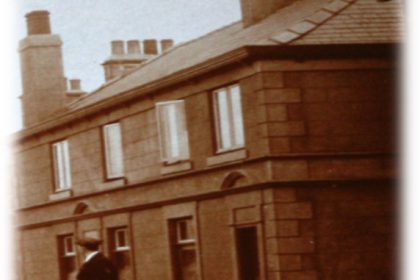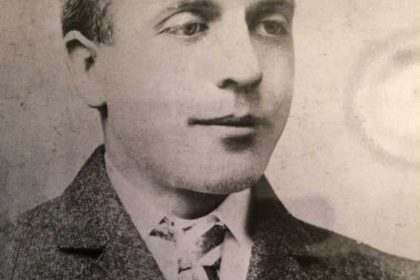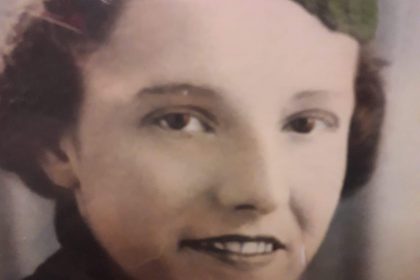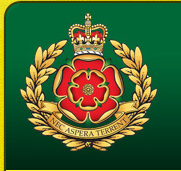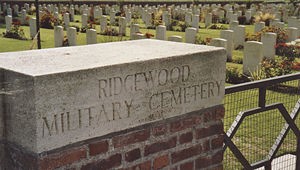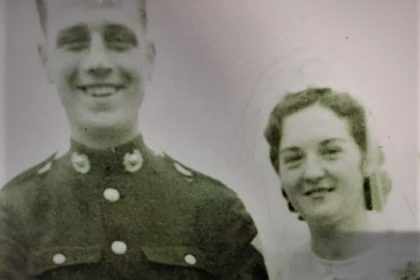Lydia Jane Plant was born at 25 Cadman Street in 1905 to Elizabeth and James Plant with her sisters Janet Edith Plant (17) and Nellie Plant (16), plus her brothers George Albert Plant (11), James Ivan Plant (9), and Ernest Marriott Plant (7) according to 1911 census. Her father was at that time a Coal Miner Hewer.
Still having a remarkably keen memory and of a sprightly disposition Lydia Plant lived at the above property all her life.
Often referred to as “New Street” it was not a road surfaced in those early days and did not become made up fully until the early fifties.
Before she even started school she recalls taking, with her old brother Ivan, Mr. Buxton’s lunch to Worral’s pit at the bottom of Hollow Lane. Mr Buxton’s ran a grocer’s shop on Cadman Street, now being a hairdresser’s business.
When Lydia started at the Village School, Mr Holmes and Mrs Groves in charge of the infants. Pupils were seated at long desks that had places for six. Each desk had six holes for inkpots, which were kept topped up by inkcans and wooden penholders that housed nibs (144 in a box).
Infants in those days used slates. Discipline was strict and Mr Butcher the School Bobby, used to chase absentees up on horseback. Scholars and parents were scared of him.
In those early times the village policeman lived on the front (High Street now). The premises are now occupied by a shop “Always an Occasion”.
Lydia remembers the Electra in Eckington with its silent films – Admission 1d and 2d – with piano accompaniment thrown in. “Stars” she remembers were Ruth Roland always the heroine, Charli Chaplin and the Keystone Cops.
The only Fish and Chip shop (Tony Buxton’s now) on Chapel Street, had fish at 1d. and chops in a conical wrapper at 1/2d. The owner was Mr Thorley.
Games in the School yard included skipping, battledore and shuttlecock, diabolo, snobs, whip and top, whilst at home most girls played dressing up.
Lydia remembers the village men who went to the Great War of 1914 -18, many of them never to return, she also saw a Zeppelin gleaming in the moonlight, in the sky towards Sheffield. After the war she watched The Trinity Institute and Church Institute being built in the early 1920’s.
The Village School was a centre of village life, auctions, whist drives, meetings, jumble sales and dances, with piano and violin accompaniment, were all held there.
In the early 1920’s she heard her first “wireless” with the old cat’s whiskers tuner and earphones – loudspeakers came later on.
Colliers were hardly recognisable – no pit baths then – and no bathrooms at home. The old tin bath before the fire, if you were lucky.
Some sixty shops abounded on the length of High Street. There was always a gala for Eckington Feast in the village, with decorated vehicles, wagonettes and Sunday School processions.
Along came the second World War, men went to fight (women too) and yet again many failed to return. Time marches on, much old housing remains, new houses and housing estates have been built and lifestyles have changed.
The farms have dwindled, the collieries have gone, the village has changed in parts almost to suburbia and Lydia has seen it all.
Thanks for the memories, Lydia! David English
Similar Posts

